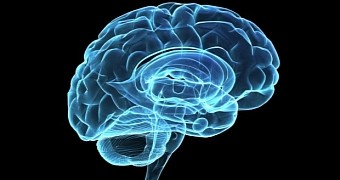People diagnosed with schizophrenia don't just experience hallucinations. They also have trouble organizing their thoughts, and their short-term memory isn't always reliable.
In a paper published earlier this week in the journal Clinical Schizophrenia & Related Psychoses, a team of researchers at Johns Hopkins Medicine propose zapping the brain of schizophrenia patients to improve their faulty short-term memory.
Yup, we're talking electrical shocks to the brain. Except the Johns Hopkins Medicine team of scientists like to call this procedure transcranial direct current stimulation of the brain.
How exactly would it work?
In their report in the journal Clinical Schizophrenia & Related Psychoses, the specialists explain that the first step would be to place electrodes covered in sponge on the head of schizophrenia patients. Next: simply fire a weak electrical current between these electrodes.
The electrical current would target a brain region that is known as the dorsolateral prefrontal cortex and that previous studies have shown is involved in short-term memory. Stimulating this brain region should improve the working memory of schizophrenia sufferers.
Mind you, the Johns Hopkins Medicine team of scientists has even tested this schizophrenia treatment of theirs. In a series of experiments, they zapped the brain of 5 volunteers diagnosed with schizophrenia and then had them complete tests designed to trial their cognitive abilities.
These experiments showed that, having been exposed to a negative electrical charge, the volunteers performed better on tests targeting their verbal and visual short-term memory. Interestingly, the researchers say that improvements were noticeable even during treatment.
The treatment is perfectly safe
Having medical experts fire electrical currents at your brain might not sound like a very pleasant experience, as weak as these electrical currents might be, but the scientists behind this research project reassure that the treatment is perfectly safe.
In fact, other teams of specialists are now investigating the possibility of using this technique to stimulate certain regions in the brain to treat disorders like depression, maybe even improve the memory of people diagnosed with Alzheimer’s.
“There are no bad side effects. If it enables people with schizophrenia to think more clearly, it would make a huge contribution to the treatment of this devastating illness,” researcher David Schretlen explained in an interview concerning this study.
The reason the team decided to investigate whether brain stimulation could improve the working memory of schizophrenia patients was that, although people diagnosed with this condition are prescribed various drugs, existing treatments only target the hallucinations they experience.

 14 DAY TRIAL //
14 DAY TRIAL //